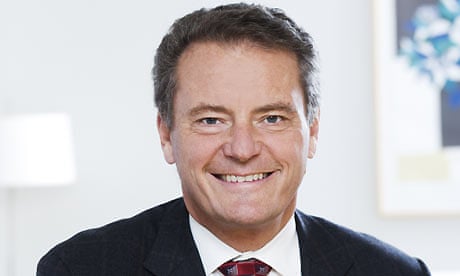As BP's chief executive Tony Hayward toils 24/7 to contain the oil spill in the Gulf of Mexico that is wreaking havoc on the environment and on BP's battered reputation in the US, one figure is notably absent – that of the group's new chairman. It will not have escaped the notice of shareholders who have seen billions wiped off the value of the oil group since Deepwater Horizon exploded last month with the loss of 11 lives, that Carl-Henrik Svanberg is keeping an unusually low profile, given the scale of the disaster that has engulfed the company. He is being paid £750,000 a year to bat for BP, but is maintaining complete radio silence.
A BP spokeswoman makes soothing noises – it is not Svanberg's job to run the business, but he has been out to the crisis control centre in Houston, is being kept up-to-date with what is happening out there and is "very supportive" of his chief executive. He does not, however, plan to say anything publicly.
But the damage to BP, whose value to pension funds is vast, could escalate now that the congressional investigations committee has revealed a possible catalogue of safety failures, including failed pressure tests on the day of the explosion.
Now facing at least six congressional committee investigations and the possibility that the £75m legal cap on its US liability might be retrospectively removed, BP will be hoping groundwork done before the explosion will now pay dividends. According to the US Centre for Responsive Politics, it spent $16m lobbying on Capitol Hill last year and $3.5m (£2.4m) in the first three months of this year. Natural territory for a chairman of an oil major, one might think.
It is almost impossible to conceive of Svanberg's predecessor, barrister, politician, banker and businessman Peter Sutherland, adopting such a low-profile approach (even though he was paid substantially less than Svanberg). Sutherland was a combative and aggressive character, who would undoubtedly have provided some air cover.
Svanberg's appointment to BP last year was always regarded as a bit out of left field. He had spent his career in Swedish industry, most recently as the boss at locks group Assa Abloy and then at mobile phone group Ericsson. But he had zero experience of the oil industry, and has admitted he was surprised to be offered the BP job. It is tempting to suggest that he may be out of his depth with BP, but the fact is that in Sweden he is a high-profile business name, with a reputation for speaking his mind who sparked a huge row in 2006 when he controversially called for a change of government.
Todayfor the first time, Hayward admitted that his job may be on the line. As he pledged again to "fix" the problem, he said "I will be judged by the response" to the disaster. That is true, but he is as likely to be judged by the circumstances, and any failures, that led up to the crisis. Maybe Svanberg realises that being too supportive of his chief executive may not be the best course of action for his own reputation.


